What are the best plant-based protein sources?
The myth of the strong meat-eater has persisted for hundreds of years. But today, more and more athletes and health-conscious people are switching to plant-based protein sources.
Numerous sports legends like bodybuilder Arnold Schwarzenegger and soccer star Serge Gnabry have already adopted a vegan diet and cover their protein needs with plant-based protein sources.
In the next 2–3 minutes, you’ll first get an overview of the best plant-based protein sources and then learn which vegan proteins are particularly well suited for athletes and health-conscious people.
What are the best plant-based protein sources?
The number of plant-based protein sources is virtually endless! In general, legumes, seeds, and nuts contain higher amounts of protein. “For example, 100 grams of pumpkin seeds contain more protein than the same amount of lean red meat or chicken.”
(All values are averages per 100 g)
Protein-rich legumes
- Soybeans (36 g)
- Lupins (36.2 g)
- Peanuts (30 g)
- Red lentils (23.9 g)
- White beans (23.4 g)
- Green peas (23.1 g)
- Kidney beans (22.5 g)
- Chickpeas (20.5 g)
Protein-rich seeds
- Pumpkin seeds (37 g)
- Sunflower seeds (27 g)
- Hemp seeds (25 g)
- Flaxseeds (25 g)
- Apricot kernels (24.5 g)
- Pine nuts (24 g)
- Poppy seeds (20 g)
- Chia seeds (17 g)
Protein-rich nuts
- Cashews (29.3 g)
- Almonds (25 g)
- Pistachios (21 g)
- Cedar nuts (19.1 g)
- Brazil nuts (17 g)
- Walnuts (17 g)
- Hazelnuts (12 g)
- Macadamia nuts (9.3 g)
These protein sources are used in our protein powder
Our multi-component protein powder consists of 5 perfectly coordinated components (pea, rice, hemp, pumpkin seed, and flaxseed protein). This allows us to offer high biological value, a creamy texture, and a delicious taste. It’s also important to pay attention to the quality of the ingredients in vegan protein, since conventional cultivation methods can leave residues like heavy metals or pesticides — which is why we prefer using organic ingredients.
%-product_content-%
Our TOP 5 plant-based protein sources
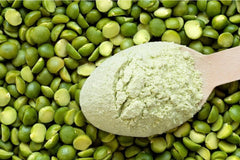
Pea protein
Pea protein is obtained by drying and milling green or yellow peas. It’s rich in branched-chain amino acids (BCAAs) such as valine, leucine, and isoleucine.
At a glance:
- 80% protein content
- High-quality isolate
- Vegan, lactose-free, and gluten-free
- Contains B vitamins, potassium, folate, and fiber
- Rich in amino acids (especially arginine, lysine, and glutamine, as well as leucine, isoleucine, and valine (BCAAs))
- Naturally very low in sugar (0.4 g per 100 g)
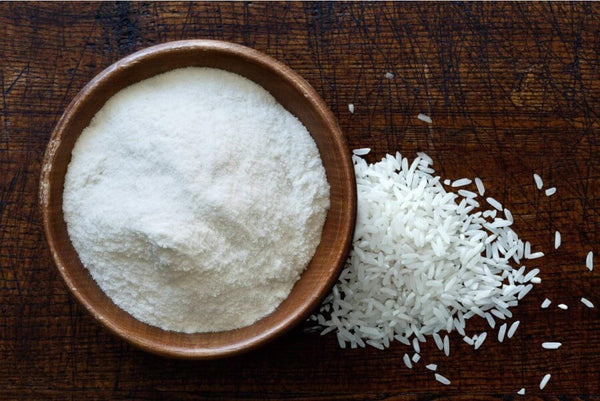
Rice protein
Rice protein is extracted from whole rice kernels. Natural germination and fermentation processes increase the protein content in the rice, creating a highly concentrated protein.
The amino acid profile of rice protein is among the highest quality of all plant-based protein sources. Levels of the three BCAAs are high — in fact, isoleucine and valine occur in higher amounts than in typical 100% whey proteins.
At a glance:
- 80% protein content
- High-quality isolate
- Vegan, lactose-free, and gluten-free
- Contains B vitamins, beta-carotene, vitamin C, vitamin D, vitamin E, folate, biotin, choline, and inositol
- Extremely rich in almost all amino acids

Hemp protein
Hemp protein is made from whole sprouted hemp seeds. It’s rich in branched-chain amino acids (BCAAs).
For our protein we use only organic hemp protein from Germany!
At a glance:
- 60% protein content
- High-quality concentrate
- Vegan, lactose-free, and gluten-free
- Locally grown
- Rich in fatty acids, minerals and vitamins
- Contains omega-3 and omega-6 fatty acids
- Free of trypsin inhibitors
- Rich in BCAAs and other amino acids
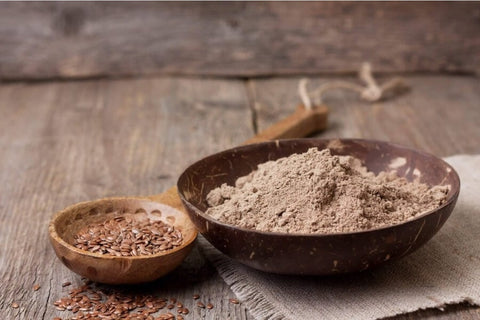
Flaxseed protein
At a glance:
- 30–40% protein content
- Vegan, lactose-free, and gluten-free
- Locally grown
- Contains essential omega-3 and omega-6 fatty acids
- A source of calcium, magnesium, and iron
- Rich in vitamins B1, B2, B6, and E, as well as folate
- Contains lignans
- Contains fiber
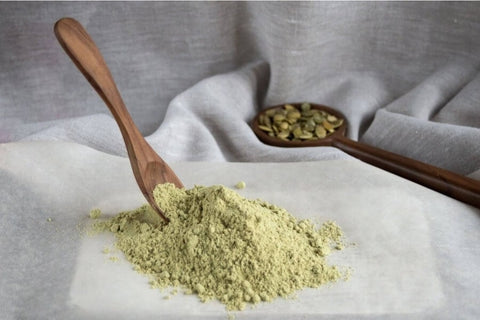
Pumpkin seed protein
At a glance:
- 60% protein content
- High-quality concentrate
- Vegan, lactose-free, and gluten-free
- Locally grown
- Rich in phosphorus, magnesium, zinc, iron, and copper
- Contains omega-3, omega-9, and vitamin K
- Contains all amino acids
- Contains fiber
%-split_content-%
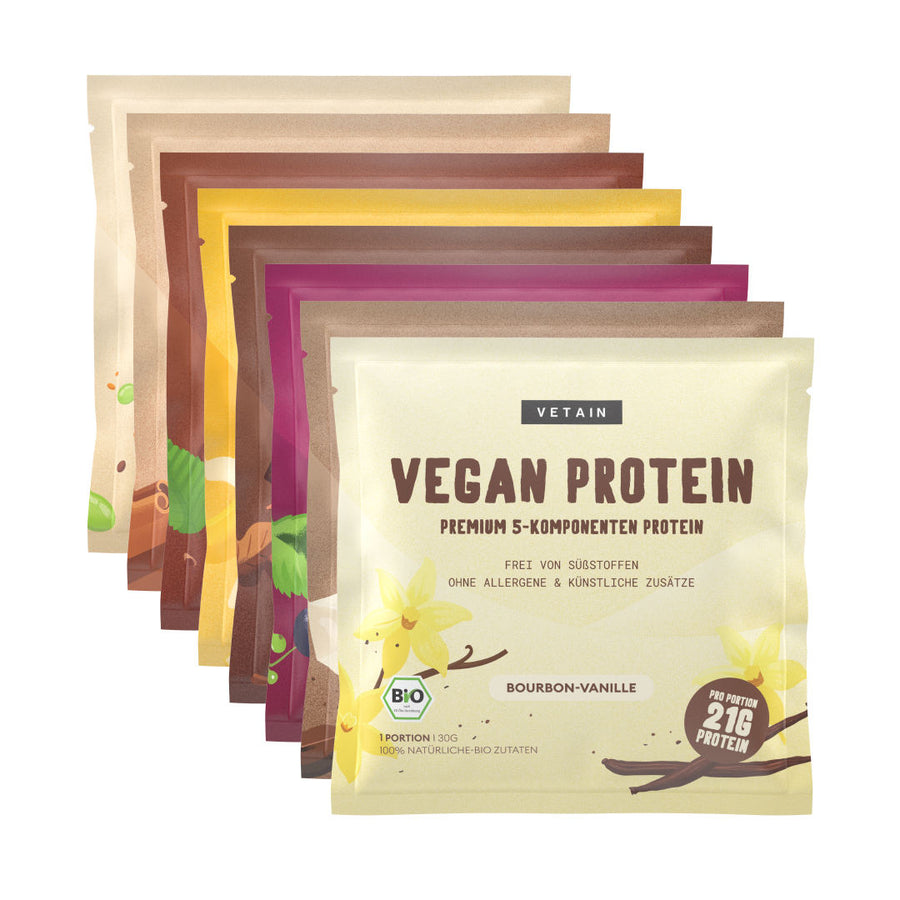
Our Vegan Protein as a sample portion – perfect for testing and gifting.
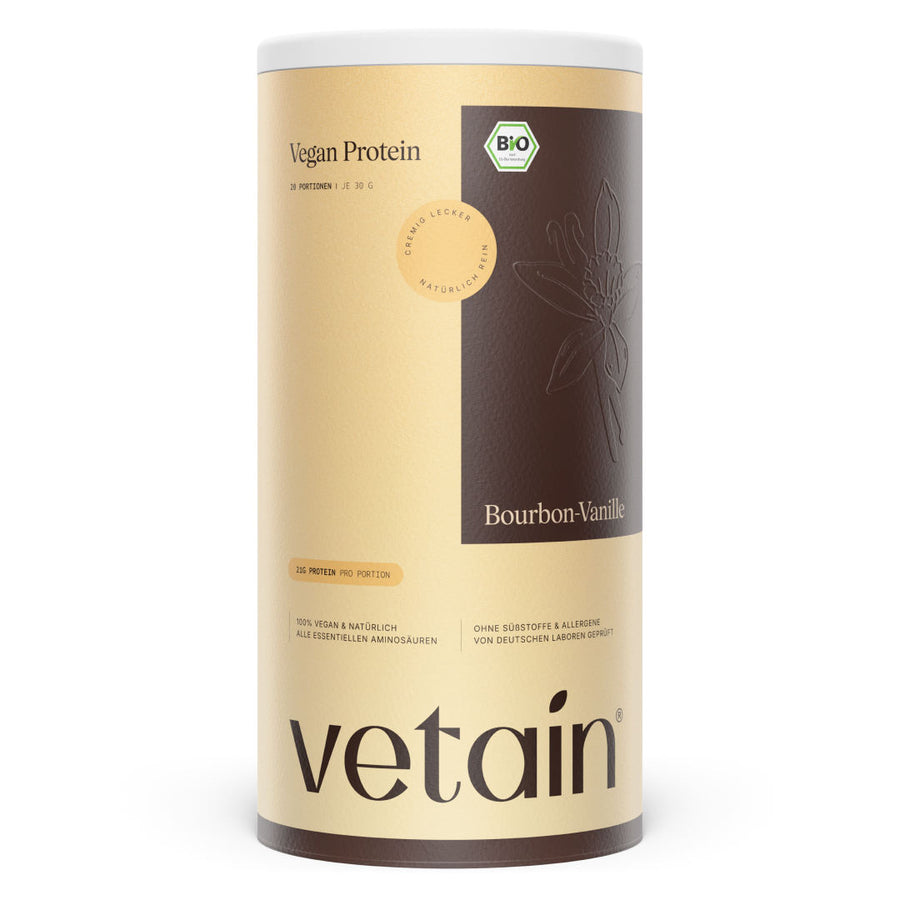 Vegan Protein Vanilla (600g/ORGANIC)
"The creamiest protein powder you’ve ever tried. Made with real bourbon vanilla."
Vegan Protein Vanilla (600g/ORGANIC)
"The creamiest protein powder you’ve ever tried. Made with real bourbon vanilla."
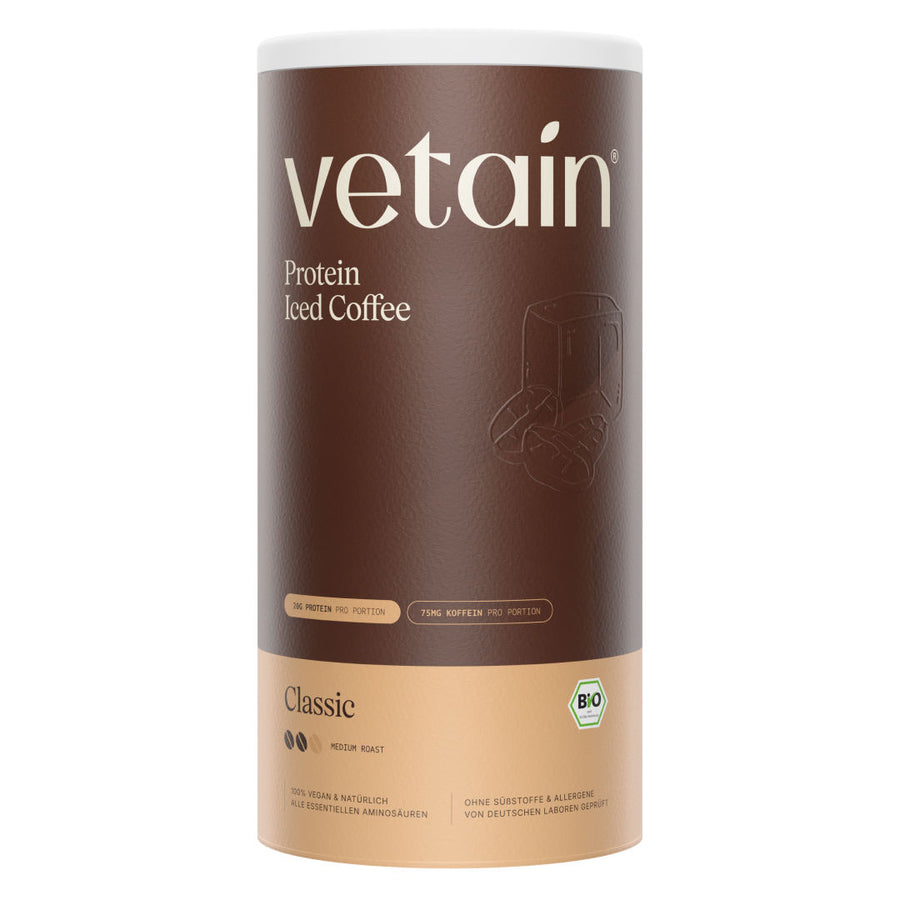 Vegan Protein Iced-Coffee (600g/ORGANIC)
"The perfect protein for coffee lovers and early risers! Delicious iced coffee flavor combined with 5 high-quality protein sources!" ☕️
Vegan Protein Iced-Coffee (600g/ORGANIC)
"The perfect protein for coffee lovers and early risers! Delicious iced coffee flavor combined with 5 high-quality protein sources!" ☕️
Table of Contents




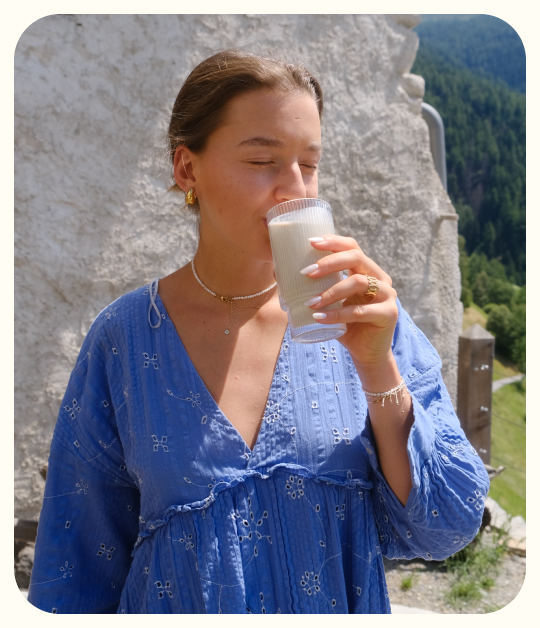
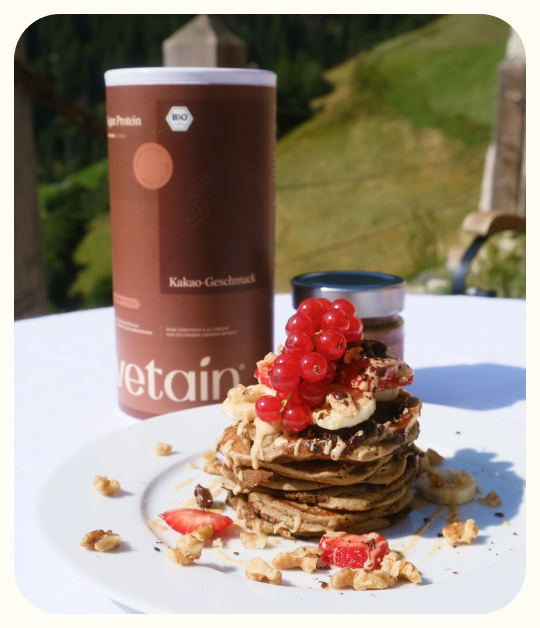


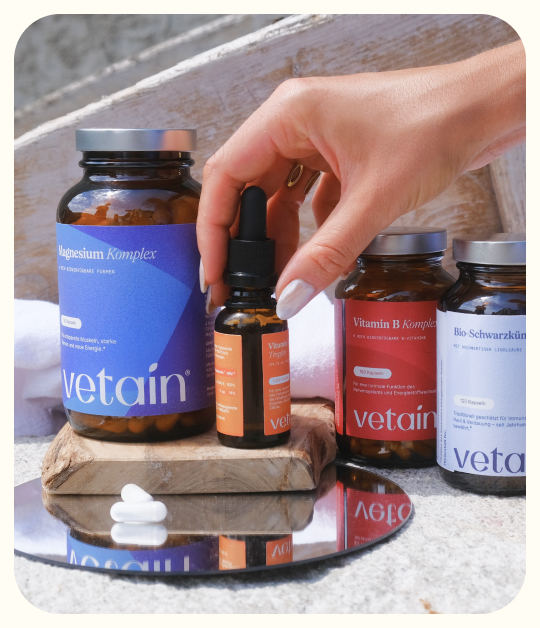






 7 Min
7 Min
 Zuletzt aktualisiert am 06.01.2026
Zuletzt aktualisiert am 06.01.2026

